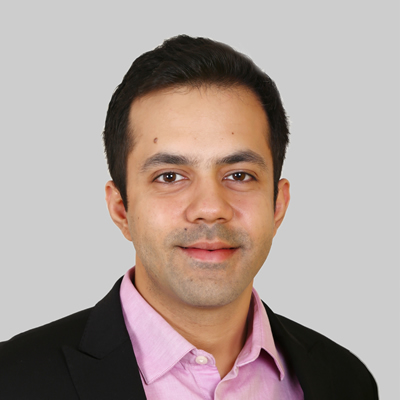Sharing by Past Participants
Could you briefly describe your profile and career?

Shrey Gupta
I participated in the competition eight years ago in 2010. Today I work for OYO—India’s fastest-growing hospitality and real estate startup. I graduated from Shri Ram College of Commerce at Delhi University in 2011 and joined Bain & Company as an analyst. This gave me an opportunity to work with people in different parts of the world on a variety of projects across investment due diligence, operations improvement, corporate strategy, and market entry. In 2013, I started working with India’s largest political party and joined the national election campaign team. The successful campaign resulted in the party winning the elections, but for me it prompted my next move. All in all, my interest lay in business and how it could play a role in the political and economic transformation of India. In 2014, when the Indian startup ecosystem was showing signs of momentum, I discovered a very early-stage startup, founded by a 19-year-old. I was 24 then. Today, OYO has grown to raise over $400mn in capital from some of the world’s largest investors, and I have learned a lot from my experience here.
To what extent did the case competition shape your future skills?

Shrey Gupta
My teammates and I had been passionate about case competitions since our first year in university. The HSBC McKinsey Case Competition gave us a new perspective on how differently students from other countries approach the same business problems. Even more valuable was the realization of how cultural differences and nuances may have impact on a business leader’s ability to successfully solve a business problem. The third takeaway was the awareness of intercultural communication skills. Although it may seem obvious to everyone, for us, this particular competition defined the moment when we experienced in real life that, understanding the audience and communicating relevant content were crucial factors that would highly influence business success. Especially when engaging with an audience where many of our friends and colleagues were not used to speaking English in the same manner and diction that we did.
How did the global context of the competition resonate in your life?

Shrey Gupta
The multinational environment, even though it lasted for only a few days again reinforced the importance of intercultural communication. It also gave us experience in applying some simple frameworks that we learned at school to real business case scenarios. The cases we had to solve covered companies and markets outside of our area of familiarity. They taught us how to separate ourselves from our biases and not let our belief system influence how we assessed the situation and solved the business problem.
Do you still keep in touch with your team members or other people that you met at the competition?

Shrey Gupta
Absolutely, I keep in touch with all my team members. My friend Radhika works with Philips in Amsterdam as a part of the strategy team, Shivanshu is with McKinsey & Co., and Arpit is currently studying for his MBA at IESE Barcelona. We are still in touch with some other friends we met at the competition with whom we keep in touch mostly via Facebook. Shout-out to our friends from NUS and Thammasat University!
Would you say that the competition had a positive impact on your life?

Shrey Gupta
Yes, it gave us valuable exposure to international context. We met talented students but also judges from around the world, and importantly, it taught us that in order to succeed, you need to learn how to quickly adapt to new situations. The format of the competition was a very new setup for us, and all the teams were approaching the issues from very different angles. We quickly understood that being one of the top teams in India was not enough to win the competition in Hong Kong.
Thinking back on the competition, how would you describe it to future participants?

Shrey Gupta
It gives you a perspective on how international business works in contrast to what you learn at the university. At school, you learn frameworks and theory; the competition was like an epiphany in that all the frameworks and theory have to be translated into practical solutions. In fact, we were quite strong in applying the business frameworks that we learned at university. Where we failed, though, was in our ability to apply the communication frameworks in order to communicate how we assessed the business context and what solutions and implementations we would offer. In short, I would describe the competition as valuable, immensely perspective widening, and a practical experience.
If you could go back in time and give yourself a piece of advice with regard to life after university, what would it be?

Shrey Gupta
I would recommend that you clearly set goals for yourself for the short term. Of course, long-term goals aside, it is crucial to develop a habit of short-term goal setting and ensuring that you have an ecosystem of managers, coaches, or mentors to monitor your progress and provide relevant feedback. Consider your goal setting a framework for what to achieve and when. You don’t always have to stick to the goals. Life is full of surprises and changes, so make this goal setting a navigation tool that will direct you toward your better future.